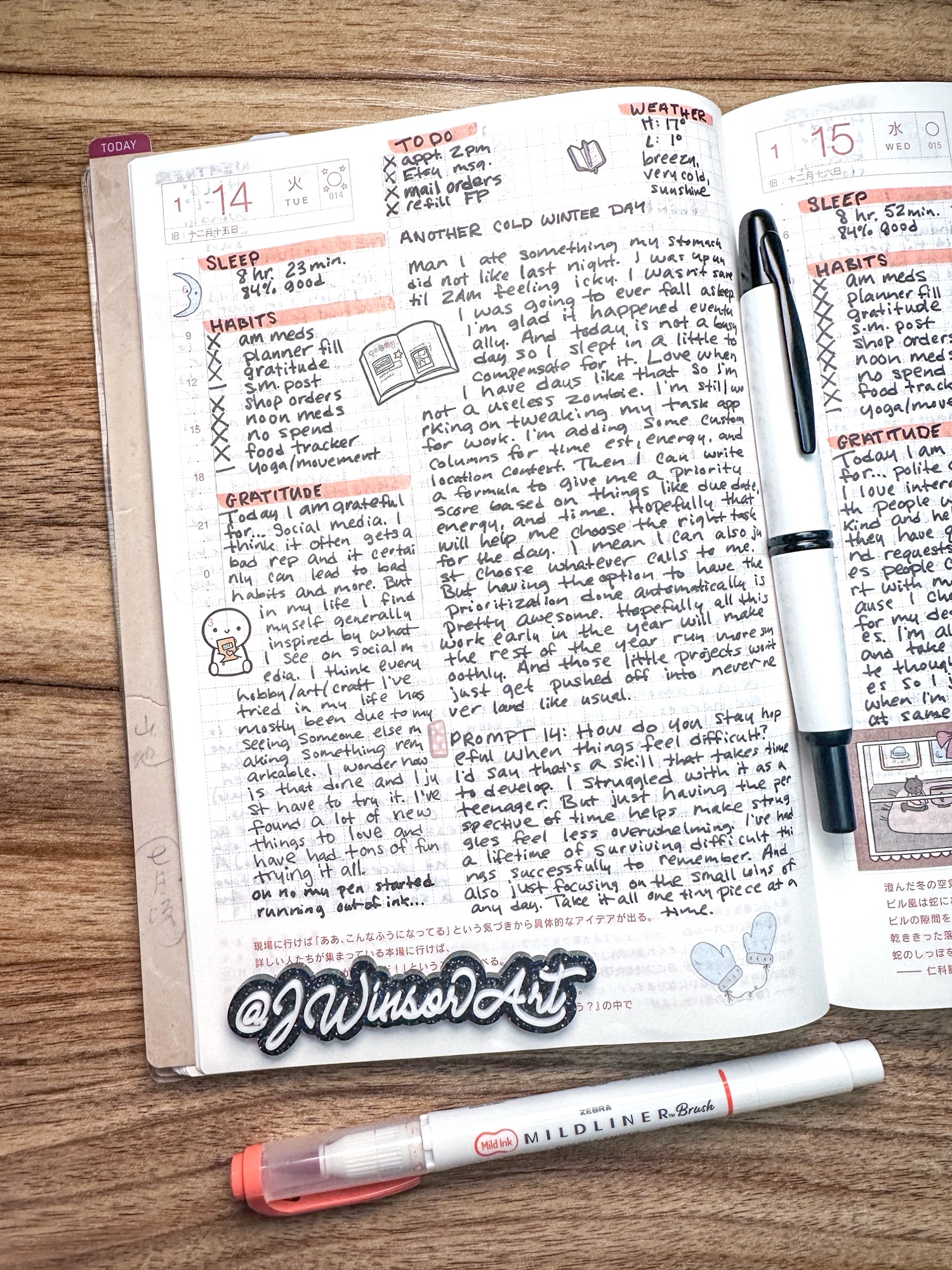
TL;DR: Plan and journal during your most stable times, keep it simple, and don’t stress about missed days. Life is for living—your journal should support you, not be a burden.
Planning and journaling are often celebrated as keys to organization, reflection, and mental clarity. But for many people, the idea of maintaining a daily habit can feel overwhelming. I get it—life is busy, plans change, and some days are just too much. Yet last year, I managed to stick with it every single day. It wasn’t because I had superhuman discipline, but because I created a system that worked for me and fit naturally into my life.

Here’s what I’ve learned about making planning and journaling a sustainable, fulfilling habit:
1. Work with Your Natural Rhythms
For me, mornings are the most stable part of my day. My energy is higher, my focus is sharper, and I have the space to plan and reflect before the chaos begins. That’s when I sit down to fill out my planner or journal.
Afternoons, on the other hand, are much more volatile—work and other responsibilities tend to take over. I sometimes revisit my planner at night, but it doesn’t always happen. And that’s okay. Find the moments in your day where you’re most grounded, and anchor your routine there.
2. Keep It Simple
Your planning or journaling doesn’t need to be a masterpiece. Forget the pressure to create elaborate layouts or write profound entries. Some days, all I do is jot down a few bullet points or make a quick note about what happened.
The point isn’t perfection—it’s capturing what’s important in a way that works for you.
3. Life Is for Living, Not Just Documenting
Here’s the thing: there’s nothing wrong with living your life and not having the time to write everything down. Planning and journaling are tools to help you reflect and organize—not something to get lost in.
If you’re too focused on documenting every detail, you might miss out on the actual experience. Let your journal or planner complement your life, not control it. Life is for living, and your habit should support that—not take away from it.
4. Be Flexible and Forgiving
It’s easy to feel defeated if you miss a day (or a few), but there’s no need to beat yourself up. You can always go back and fill in what you remember or even skip those days altogether.
The goal is progress, not perfection. A missed day doesn’t mean you’ve failed—it just means you’re human.
5. Customize It to Fit Your Life
No two routines are the same. If mornings aren’t your thing, try journaling at lunch or winding down with it before bed. If daily journaling feels like too much, start with a few days a week. The more you adapt your system to your energy and schedule, the easier it will be to stick with it.
6. Focus on Progress, Not Pressure
Your journal should be a source of support, not a burden or chore. Let go of the pressure to make it perfect or to never miss a day. Focus instead on how planning and journaling can help you live more intentionally—not as something that adds stress to your life.
7. Keep Your Supplies Convenient
One simple way to make planning and journaling a consistent habit is to keep your supplies where you’ll actually use them. If you like to journal in the morning, keep your notebook, planner, and pens by your bed or wherever you start your day. If you prefer to journal during lunch or at work, stash your supplies in your bag or at your desk.
The easier it is to access your supplies when the moment strikes, the more likely you are to follow through. You don’t need a fancy setup—just a spot that feels natural and convenient for your routine. By removing small barriers, you make it that much easier to stay consistent.
Planning and journaling are valuable tools, but they’re just that: tools. They’re meant to enhance your life, not dominate it. When you let go of the need for perfection and approach them with flexibility and grace, they can become an effortless and enriching part of your routine.
Remember: the point isn’t to have the perfect journal or planner—it’s to live a life worth reflecting on. And if that reflection happens in bullet points or occasionally skips a day, that’s more than enough.



